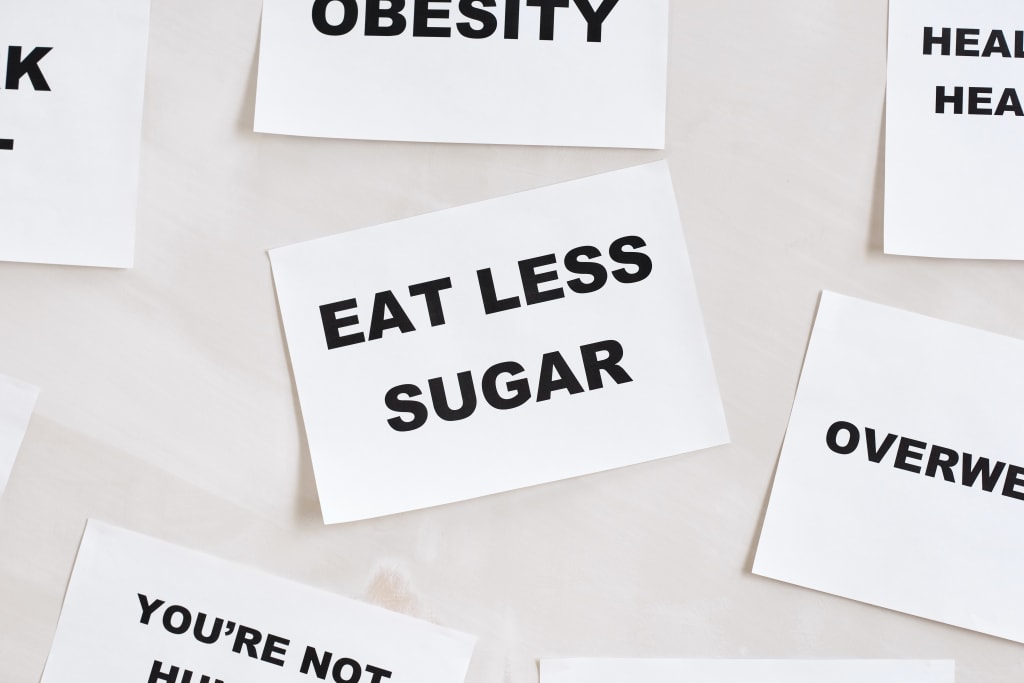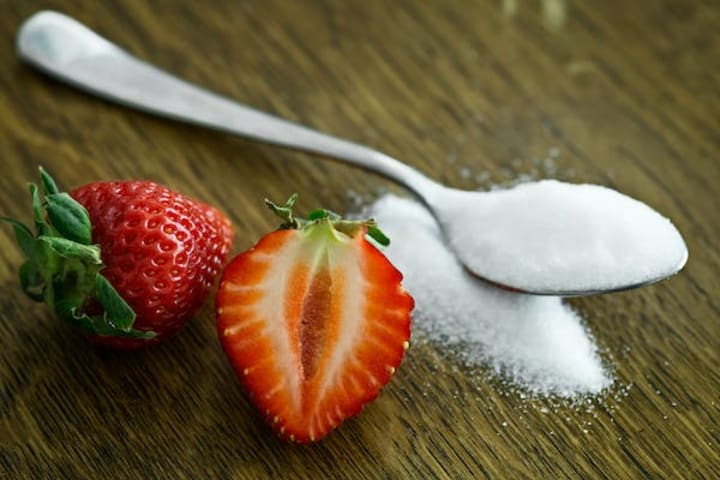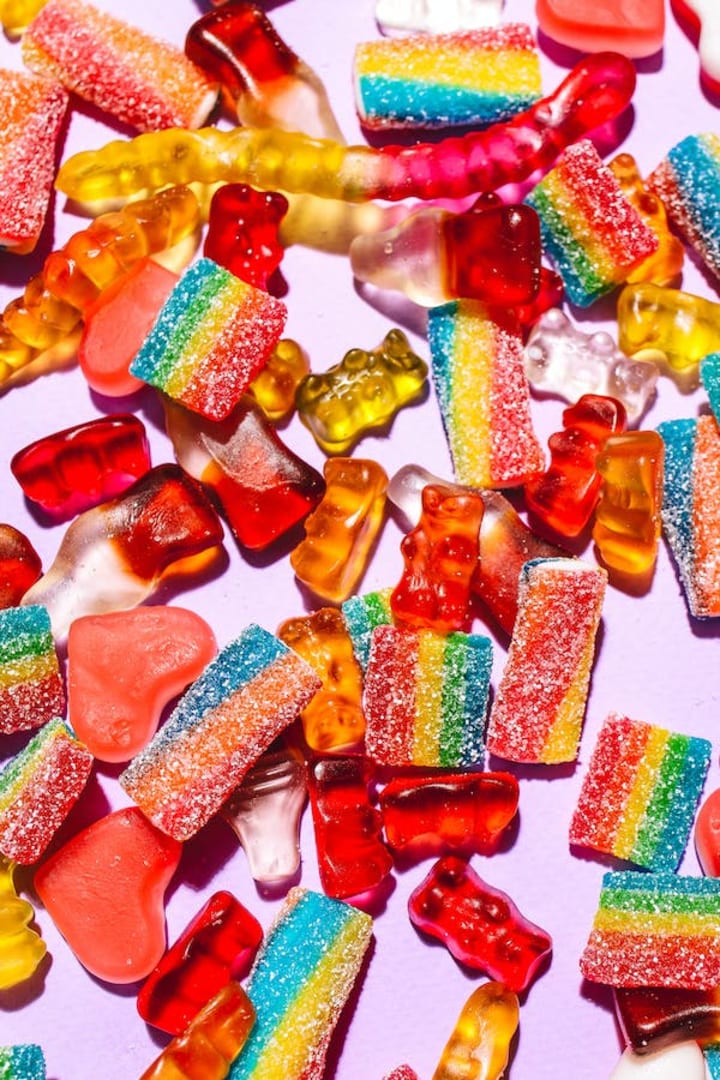
Sugar, also known as the "sweet devil" or "white poison," is a simple carbohydrate that can be found in many forms, including glucose, fructose, and sucrose.
Overview of sugar consumption in the modern diet:
Are you ready for a sugar shock? The average person consumes a whopping 22 teaspoons of sugar a day, which is more than three times the recommended amount. From breakfast cereals to salad dressings, sugar is sneakily hiding in almost all of our favorite foods. And let's not forget the obvious culprits like soda and candy. It's time to face the sugar monster and take control of our sweet tooth.
I. Short-term effects
A. Energy spikes and crashes:
- Consuming large amounts of sugar can cause a rapid spike in blood sugar levels.
- This leads to a burst of energy, followed by a crash, leaving you feeling tired and sluggish.
- This can also cause fluctuations in hunger and cravings leading to overeating.
B. Tooth decay:
- The bacteria in our mouths thrive on sugar, leading to the production of acid that can erode tooth enamel and cause cavities.
- Consuming sugary foods and drinks frequently increase the risk of tooth decay.
C. Weight gain:
- Consuming too much sugar can lead to weight gain, as the excess calories from sugar are stored in the body as fat.
- This can also cause an increase in hunger and cravings leading to overeating.
- D. Increased risk of type 2 diabetes:
- Consuming excessive amounts of sugar can lead to insulin resistance, which increases the risk of developing type 2 diabetes.
- High sugar intake increases the risk of obesity which is a major risk factor for diabetes.

III. Long-term effects
A. Cardiovascular disease:
- Consuming excessive amounts of sugar can increase the risk of developing heart disease by contributing to high blood pressure, high cholesterol, and obesity.
- It can also cause inflammation in the body, which has been linked to the development of cardiovascular disease.
B. Non-alcoholic fatty liver disease:
- Consuming too much sugar can lead to the accumulation of fat in the liver, which can cause inflammation and scarring.
- This can lead to non-alcoholic fatty liver disease (NAFLD) which can progress to a more serious condition called non-alcoholic steatohepatitis (NASH)
C. Cancer:
- Studies have suggested that consuming high amounts of sugar is associated with an increased risk of certain types of cancer, including breast, colon, and prostate cancer.
- Excess sugar consumption can lead to obesity, which is a known risk factor for cancer.
D. Cognitive decline:
- Studies have suggested that consuming high amounts of sugar can have negative effects on the brain, including memory loss and cognitive decline.
- It can also lead to an increase in inflammation throughout the body which can negatively impact the brain.
E. Depression and anxiety:
- Consuming excessive amounts of sugar can lead to mood swings, irritability, and a lack of energy which can contribute to depression and anxiety.
- Some studies have also suggested that consuming high amounts of sugar can lead to changes in the brain that can contribute to the development of depression and anxiety.

Recommendations for reducing sugar intake:
A. Read nutrition labels:
- Learn to recognize added sugars by looking out for names such as high fructose corn syrup, dextrose, and sucrose on ingredient lists.
- Compare different brands and products to find options with lower sugar content.
B. Choose whole foods over processed foods:
- Whole foods like fruits, vegetables, and whole grains contain natural sugars that are less harmful to the body.
- Processed foods often have added sugars that can be harmful to the body.
C. Limit intake of sweetened beverages:
- Sweetened beverages such as soda, sports drinks, and sweetened coffee and tea can contain high amounts of added sugars.
- Try to limit or avoid these drinks and opt for water or unsweetened beverages instead.
D. Experiment with natural sweeteners:
- Natural sweeteners like honey, maple syrup, and stevia are healthier alternatives to refined sugar.
- Experiment with these sweeteners in small amounts to find one that you like and use it in recipes that call for sugar.
Conclusion:
Well, folks, we've reached the end of our sugar-filled journey, and let me tell you, it's been one wild and crazy ride. Sure, a little sugar here and there isn't going to kill us, but as we've seen, too much sugar can be like playing with fire. We've seen the evidence, and it's clear as day, sugar is like a mischievous little imp, sneaking into our diet and causing all sorts of mischief. But don't worry, we've armed ourselves with the knowledge and tools to tame the sugar beast and live our healthiest lives. So, let's raise a glass (of water, of course!) to ditch the sweet devil and embrace a healthier lifestyle. Remember, a little sugar is okay, but when it comes to our health, too much of a good thing can quickly turn bad.
About the Creator
Nova
As an article writer and poet, I am excited to share my knowledge and creativity with the world. I bring accuracy and attention to detail to my writing, thoroughly researching topics for my articles and pouring my emotions into my poems.






Comments
Nova is not accepting comments at the moment
Want to show your support? Send them a one-off tip.